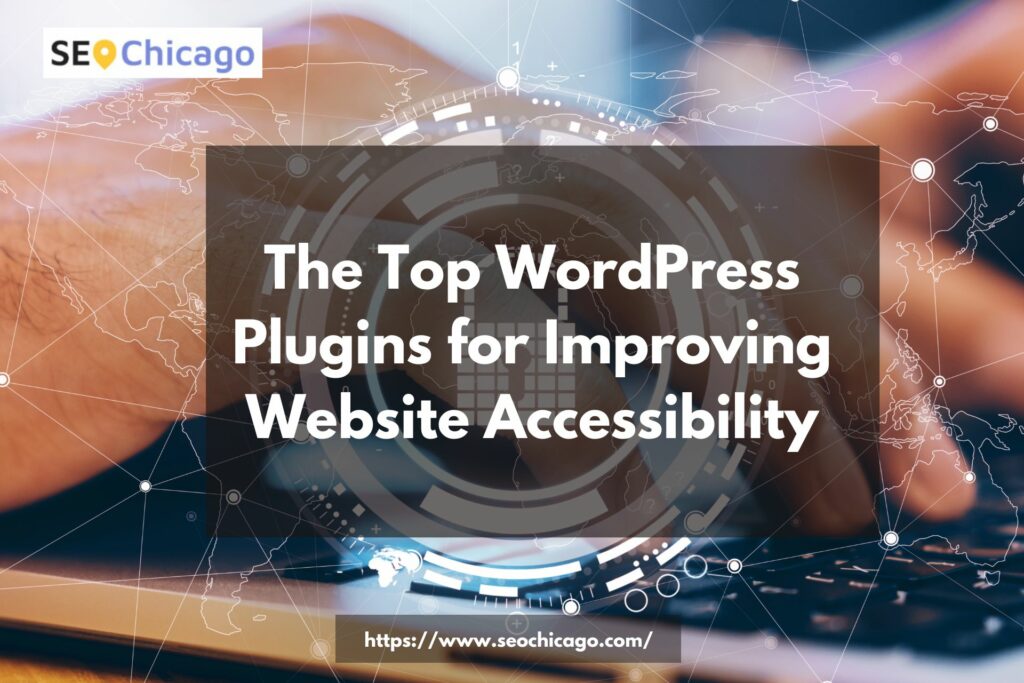In today’s digital landscape, creating an inclusive and accessible online experience is not just a moral obligation, but also a legal requirement. Web accessibility ensures that all individuals, regardless of their abilities, can navigate and interact with websites seamlessly. For WordPress website owners, achieving this level of accessibility can be greatly facilitated by the use of plugins. In this article, we’ll explore the top WordPress plugins that can enhance website accessibility, making your online presence welcoming and usable for everyone.
Understanding Website Accessibility
Before we delve into the plugins, let’s briefly understand what website accessibility entails. Website accessibility refers to designing and developing websites in a way that allows people with disabilities to perceive, understand, navigate, and interact with the content. This includes individuals with visual, auditory, motor, and cognitive impairments. An accessible website ensures equal access to information and services, fostering inclusivity and diversity.
The Importance of WordPress Accessibility Plugins
To ensure your WordPress website adheres to accessibility standards, plugins play a crucial role. These plugins add specific functionalities that optimize the website for different disabilities. They address issues such as screen reader compatibility, keyboard navigation, color contrast, and more. Let’s explore the top plugins in this category:
1. WP Accessibility
WP Accessibility is a comprehensive plugin that offers a range of tools to enhance website accessibility. It focuses on improving keyboard navigation, skip links, and other features that are vital for individuals who rely on assistive technologies. With its user-friendly settings, this plugin makes it easier for website owners to adjust elements without the need for coding knowledge.
2. Easy WP Accessibility
True to its name, Easy WP Accessibility simplifies the process of making your WordPress site more accessible. It allows users to adjust text size, contrast, and spacing, ensuring content remains readable for people with visual impairments. Additionally, the plugin provides alternatives for images, making them accessible to those who use screen readers.
3. AccessiBe
AccessiBe takes a unique approach to website accessibility by utilizing artificial intelligence. This plugin automatically scans your website and applies changes to ensure compliance with accessibility guidelines. It includes features like screen reader adjustments, keyboard navigation enhancements, and text-to-speech capabilities.
4. WAI-ARIA Manager
WAI-ARIA Manager is designed to optimize the use of WAI-ARIA (Web Accessibility Initiative – Accessible Rich Internet Applications) attributes. These attributes provide additional information to assistive technologies, improving the user experience for individuals with disabilities. The plugin simplifies the process of adding these attributes to your content.
How These Plugins Improve Accessibility
These plugins contribute to accessibility in various ways:
- Screen Reader Compatibility: Plugins ensure that screen readers can accurately interpret and convey website content to users with visual impairments.
- Keyboard Navigation: They enhance keyboard navigation, allowing users who cannot use a mouse to navigate the site effectively.
- Color Contrast: Plugins help maintain sufficient color contrast, ensuring text and images are distinguishable for users with color blindness.
- Alt Text for Images: By adding alternative text to images, plugins make visual content accessible to screen reader users.
Conclusion
Incorporating accessibility features into your WordPress website is not just a trend but a necessity. The plugins mentioned above make the process easier, helping you create a website that caters to all users, regardless of their abilities. Remember, an inclusive website benefits everyone and fosters a more diverse online community.
Frequently Asked Questions
Are these plugins compatible with all WordPress themes?
Generally, these plugins are designed to be compatible with a wide range of themes, but some testing may be required.
Can I rely solely on plugins for accessibility?
While plugins help, manual testing and adherence to accessibility guidelines are also crucial.
Are there legal consequences for not having an accessible website?
Yes, many countries have laws that require websites to be accessible, and non-compliance can result in legal actions.
How often should I update these accessibility plugins?
Regular updates are essential to ensure compatibility and keep up with evolving accessibility standards.
Can I achieve 100% accessibility with plugins alone?
While plugins are powerful tools, achieving complete accessibility may also require design and development considerations.
